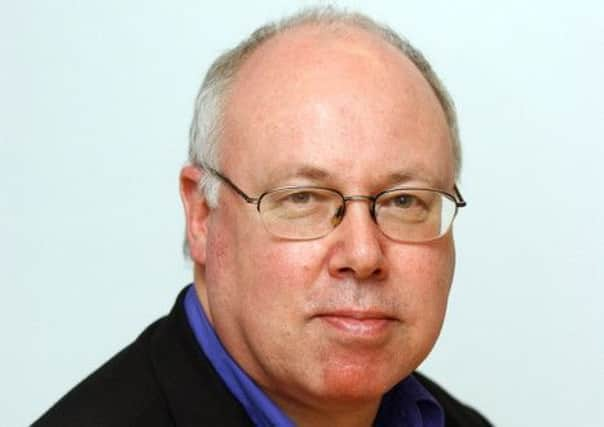Comment: Sport’s biggest transfer overshadows battle


Livingston leaves BT on a high, having rescued the company from its recession nadir in 2009, when the share price hit 72p. Thursday’s first-quarter earnings report claimed 500,000 subscribers already signed up for BT’s new sports cable channel – which does not start till next month. Better still, pre-tax profits outperformed market expectations.
So why did BT shares close down on Thursday, while those of satellite sports rival BSkyB went up (the share movements were somewhat reversed yesterday)? Certainly, a dawning realisation that Livingston has been signed up to play for Cameron and Osborne is involved. But beneath the PR hype surrounding the BT earnings statement there are signs that Livingston’s attempt to take on BSkyB on its home ground is still far from being a success.
Advertisement
Hide AdAdvertisement
Hide AdFor a start, the majority of the half million “subscribers” for BT’s new sports venture are already BT broadband customers who will get offered the new channel bundle for free. True, the offering has limited subscriber “churn” – BT broadband customers going elsewhere – which is one up to Livingston. But net new customers for BT’s cable television package amounted to a miserly 23,000, well down on the 40,000 added in the previous quarter.
Another lurking problem is that while BT has been chasing Sky in the television market, upstart TalkTalk has been creeping up on BT in its core broadband business. TalkTalk signed up a chunky 160,000 customers between April and June, which compares favourably with BT’s extra 197,000 in the same period. Fighting BSkyB is one thing, but fighting a war on two fronts – TV content and broadband provision – is quite another.
Granted, BT has not run out of innovative ideas. Grant Best, the company’s head of sport, wants to introduce American-style dressing room interviews during Premier League matches. Yet that may not be enough to catch BSkyB.
Sky reported pre-tax profits of £1.26 billion for the 12 months to June, up 6 per cent. Plus the company saw its total individual subscriptions rise 3.3 million to 31.6 million in the year to the end of June. The number of Sky households with HD set-top boxes more than doubled.
Perhaps Livingston may be changing teams just in time.
Treasury must be seen to be fair and equitable
Life is not equitable. Next March is the deadline for claiming under the £1.5bn Treasury scheme to compensate savers who lost money during the near collapse of Equitable Life back in 2000. But, according to a report by the House of Commons public accounts committee, more than 200,000 Equitable policyholders (one in five) could miss this deadline as a result of poor publicity regarding the scheme.
According to the committee, the problem lies not with policyholders but with the management of the compensation scheme itself. The Treasury has pulped the details and addresses of an eligible 353,000 policyholders provided by the Equitable Members Action Group in 2011, supposedly on data protection grounds.
Suspicious minds think the Treasury is only too happy to drag its feet to save cash. In response, the Treasury lays the blame on the previous Labour government
There’s an easy solution, of course: just lift the deadline.